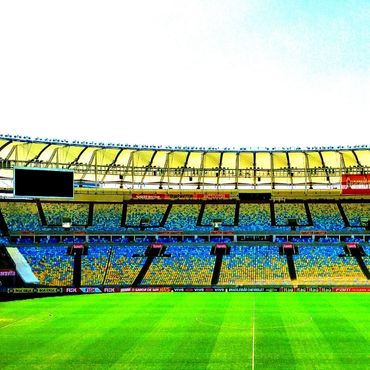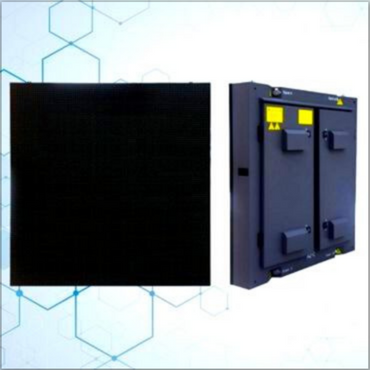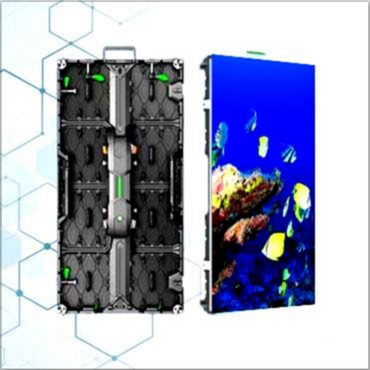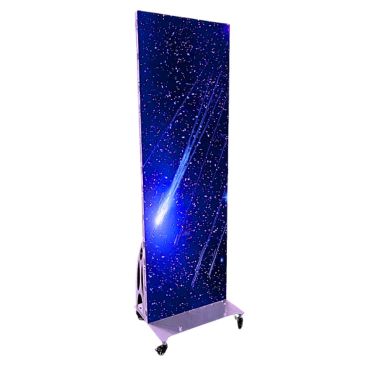Bus Stop Display Board
| Pixel Pitch | P2.5 P3 P4 P5 |
|---|---|
| Cabinet size: | 620*440,800*260mm,290*890mm… |
| Module size: | 320*160, 192*192,180*180,256*192mm… |
| Refresh rate: | 1920Hz |
| Power: | Max:800W/sqm,Avg:250W/sqm |
| Waterproof : | IP65/IP54 |
| Brightness: | 3000-6000cd |
| Input Voltage: | AC110-220V |
LED Bus Stop Display: The Future of Smart City Public Transport
In modern cities, public transport plays a crucial role in people’s daily lives. Among its many innovations, the Bus Stop LED Display has become an indispensable part of urban infrastructure, providing real-time vehicle information to passengers and improving commuting efficiency.
The bus stop LED display is usually installed on the top and inside of the bus stop, or on the light pole near the bus stop, so that passengers can view the real-time location and information of the bus.
Advantages of LED Bus stop display boards:
- Real-Time Updates – LED displays show accurate arrival times, route changes, and service disruptions, reducing passenger uncertainty.
- Multifunctional Information – Besides bus schedules, these displays can show weather alerts, emergency notices(Authorities can push safety notifications during crises), and even advertisements.
- Solar-Powered bus stop LED display – Further reducing energy consumption.
- The Bus Stop LED Display is more than just a digital signage—it’s a smart tool that enhances urban mobility. As technology evolves, these LED displays will continue to shape the future of public transport, making cities smarter and more connected.
From GPS tracking to cloud processing and energy-efficient displays, bus stop LED Display systems represent a fusion of IoT and urban planning. Future integration with smart city platforms will further enhance their capabilities.

- How LED Bus Stop Displays Work: Functionality and Implementation
The Bus Stop LED Display is a key component of smart urban transport systems. Its real-time information updates, energy efficiency, and reliability depend on a combination of hardware, software, and cloud platform.
The LED bus stop screen is composed of LED screen, power supply, controller, 4G communication module, bus stop announcement device, bus stop sign system and cloud control and dispatching platform.
Its working principle is generally divided into two situations. One situation is that the LED screen system is connected to the bus management system platform through code. The bus management platform sends instructions and bus status directly to the controller of the bus stop screen, and then the controller sends it to the LED screen.
In the other situation, there is no bus management platform. The vehicle needs to be equipped with a station announcer, which communicates with Top Shine’s station software through the station announcer. The station management platform then forwards the real-time information of the bus to the LED screen controller, and the controller sends it to the bus stop screen. The whole process is automatically transmitted through 4G wireless.
Data Collection & Transmission
Bus stop LED displays rely on real-time data from multiple sources:
- GPS & Vehicle Tracking
Buses equipped with GPS modules transmit their location to a central control system, which calculates arrival times. - Traffic Management Systems
Integration with city traffic data helps adjust predictions during congestion or accidents. - Cloud-Based Scheduling
Operators update routes/schedules via cloud platforms, instantly syncing to all bus stop LED displays.

Related Product
Provide you with the most professional bus stop LED display solution.
“Smart Travel at Your Fingertips — Intelligent Bus Stop LED Displays Make Waiting Efficient and Cities Smarter!”
Typically updates every 10-30 seconds, depending on the traffic management system and network conditions.
Yes, high-quality displays are weatherproof (IP65-rated) and function in -30°C to 60°C, suitable for most climates.
No. The bus stop display can set the time brightness table through the software, and the brightness will automatically change when the time comes. or via has auto-dimming technology to reduce brightness at night.
This usually happens due to unexpected traffic or schedule adjustments. The system keeps updating, so we recommend checking mobile apps for the latest info.


















